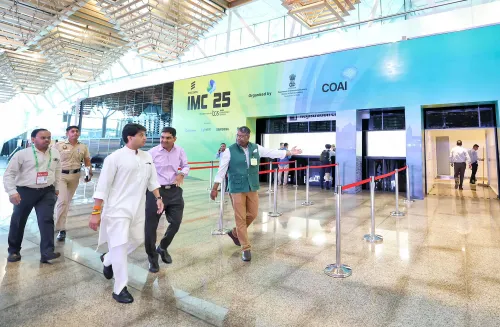Over a Decade, Mobile Data Prices Plummet by 96% and Broadband Speeds Surge by 72%: Government Report

New Delhi, Dec 18 (NationPress) The price of mobile data has seen a remarkable decline, falling from Rs 269 per GB in March 2014 to Rs 9.08 per GB today, representing an astonishing 96.6% drop, as reported to Parliament on Wednesday.
Simultaneously, the average mobile broadband speed has escalated from 1.30 Mbps in March 2014 to 95.67 Mbps (as of October), marking an impressive increase of nearly 72%, stated Union Minister for Communications, Jyotiraditya Scindia, during a Lok Sabha session.
He further disclosed, “The average data consumption per subscriber has now reached 22.24 GB per month.”
As of October, the number of 4G Base Transceiver Stations (BTS) has risen to 24,96,644, distributed across 783 districts.
“India is witnessing the swiftest deployment of 5G services globally, with 4,62,084 BTS installed in 779 districts,” the minister noted.
Recently, the nation advanced 11 positions in the 'Network Readiness Index 2024' (NRI 2024), now ranking 49th worldwide.
This improvement is accompanied by a rise in the score from 49.93 in 2023 to 53.63 in 2024, as per the index published by the Portulans Institute, an independent non-profit research organization based in Washington, DC.
The country excels in various metrics such as AI, FTTH Internet Subscriptions, and Mobile Broadband Internet Traffic, according to the Ministry of Communications.
Over the last decade, the tele-density has risen from 75.2% to 84.69%, and the number of wireless connections has reached 119 crore. Additionally, India launched 5G services in 2022, significantly boosting its global mobile broadband speed ranking from 118 to 15.
According to the latest Ericsson Mobility Report, 5G subscriptions in India are anticipated to hit around 970 million by the end of 2030, making up 74% of all mobile subscriptions.
India currently holds the title for the highest average monthly data usage per smartphone at 32 GB, which is projected to increase to 66 GB by 2030.









